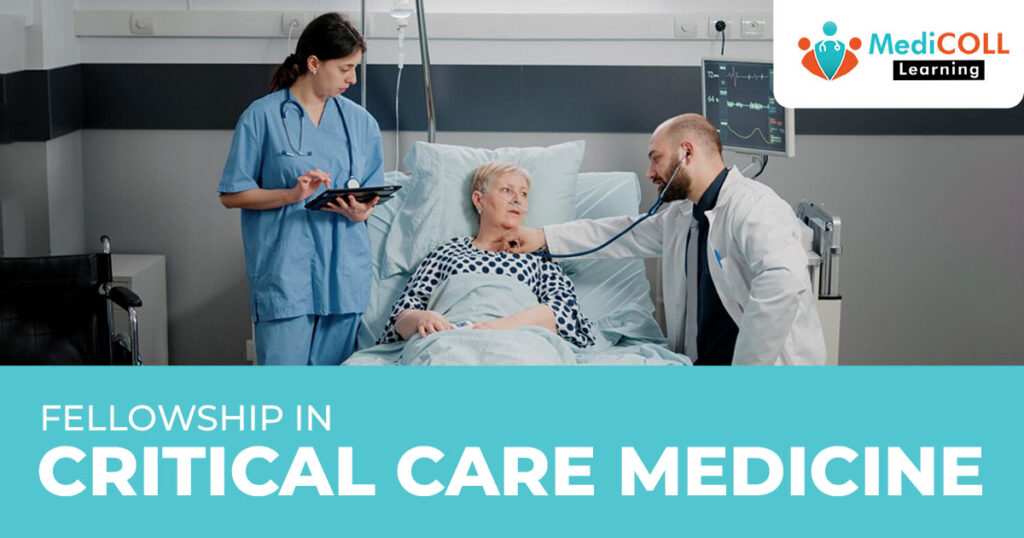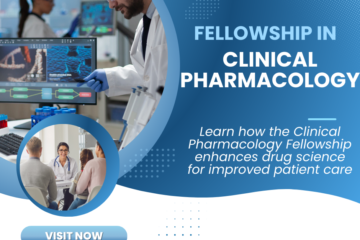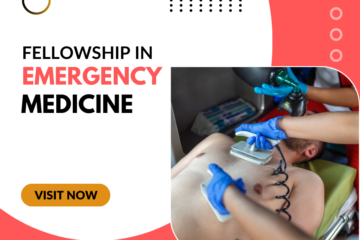
In the constantly evolving field of modern medicine, Critical Care Medicine plays a crucial role in India. It serves as a beacon of hope, resilience, and expertise. As health care continues to progress, the need for skilled professionals capable of managing the complexities of critically ill patients increases. This is where the Fellowship in Critical Care Medicine in India comes in. It offers a transformative journey that is coupled with cutting-edge advancements in medical technology. These advancements are shaping the future of intensive care.
The Fellowship in Critical Care Medicine is more than just a learning program. It is a transformative journey that equips healthcare professionals with the skills, knowledge, and mindset they need to navigate the intricate realm of critical care. From mastering life-saving interventions to understanding the nuances of patient management, this fellowship sets the stage for excellence.
Critical care physicians are the unsung heroes in the battle against life-threatening illnesses. Their expertise is crucial in managing patients in critical conditions, where timely and precise interventions can make all the difference. The Fellowship in Critical Care Medicine opens doors to specialized education that goes beyond the basics. It delves into the intricacies of managing complex cases, from severe trauma to advanced respiratory distress.
Benefits of a Fellowship in Critical Care Medicine
- Comprehensive Training: The Fellowship in Critical Care Medicine offers comprehensive training to healthcare professionals. It is designed to provide an all-encompassing understanding of critical care, from advanced life support techniques to managing complex cases. This program is an immersive experience that goes beyond the conventional boundaries of medical education.
- Multidisciplinary Approach: Critical Care Medicine requires a collaborative approach, and this fellowship embraces that ethos. Participants work alongside experts from various medical specialties, refining their ability to handle complex critical cases.
- Real-world Exposure: A hallmark of the program is its emphasis on real-world exposure. Fellows engage in hands-on experiences in intensive care units, learning to make swift and informed decisions in high-pressure scenarios. This invaluable experience prepares them for the challenges of the critical care environment.
As we explore the field of critical care, it becomes clear that technology is an invaluable tool in the effort to save lives. Advanced medical technologies have transformed the way patients are treated, improving diagnosis, treatment, and overall results.
Here’s a glimpse into some of the cutting-edge technologies shaping the future of Critical Care Medicine:
- Precision Monitoring with Wearable Devices: Wearable devices have transcended fitness tracking and made their way into critical care. Monitoring vital signs in real time through wearable technology enhances the precision of patient care. Fellows learn to leverage these tools for continuous monitoring and early detection of potential complications.
- Simulation and Virtual Reality: Simulations and virtual reality are invaluable tools in critical care training. The fellowship utilizes immersive experiences to simulate high-stakes scenarios, allowing participants to hone their decision-making skills in a risk-free environment. This hands-on approach ensures readiness for real-life critical situations.
- Artificial Intelligence in Diagnosis and Treatment: Harnessing the power of artificial intelligence (AI), the fellowship explores the role of AI algorithms in predicting patient outcomes, identifying patterns, and optimizing treatment plans. Integrating AI into critical care practices enhances efficiency and augments the decision-making process.
- Wearable Technology: Wearable devices equipped with advanced sensors offer real-time monitoring of vital signs. This continuous stream of data enables healthcare providers to detect subtle changes in a patient’s condition promptly, facilitating early intervention and personalized care plans.
- ECMO and Advanced Life Support Systems: Extracorporeal Membrane Oxygenation (ECMO) and other advanced life support systems have transformed the management of severe respiratory and cardiac failure. These technologies provide a bridge to recovery for critically ill patients, offering a higher chance of survival and improved quality of life post-treatment.
In conclusion, the Online Fellowship in Critical Care Medicine in India, along with medical technology, represents a perfect combination of experience and innovation. As healthcare professionals undertake this transformative journey, they emerge as skilled critical care specialists and champions of modern advancements that define the future of intensive care.
The combination of knowledge and innovation leads to a brighter and healthier tomorrow in the field of critical care medicine.



0 Comments